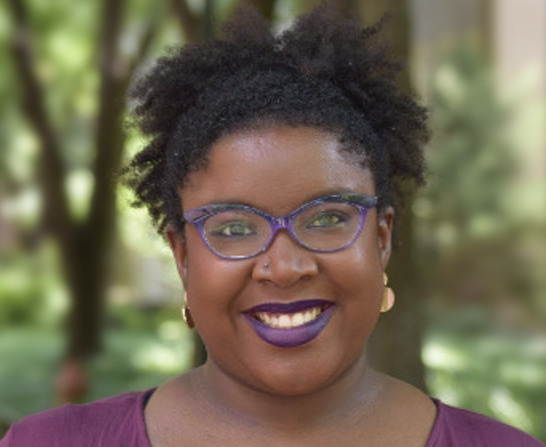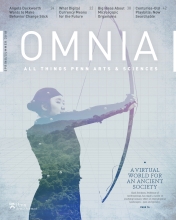Leslie Jones, Ph.D. candidate in the Department of Sociology, is exploring the intellectual contributions of Black feminists on social media.
Jones uses the concept of the “salon” to create an intellectual genealogy of spaces where knowledge has been created. In early 18th-century France, a salon was a gathering of prominent intellectuals and artists at the home of a society host, usually a woman. Recent Black feminist scholarship has described the beauty salon (launched in the American Jim Crow era) as a community-based epicenter for Black females to gather, discuss politics, and initiate social activism.
As a Price Mellon Doctoral Fellow in the Price Lab for Digital Humanities, Jones’ research focuses on a newer intellectual gathering place for women, specifically Black feminist women: Facebook and Twitter. Disentangling from the elite nature of the European salon, Jones is interested in the voices of everyday Black women, particularly those who are marginalized not only in the general sense but also within the corridors of intellectual production, such as academia. She says these newer types of intellectual gatherings, therefore, may be less like a salon and more like a “marketplace of ideas” that builds upon the subversive nature of beauty shop politics.
“Black female influencers like @FeminstaJones on Twitter cannot readily point to letters after their name or a university affiliation to give their arguments weight,” says Jones. “They have legitimization through their own experiences.
“For sociology to advance in the field of intersectionality and understanding interrelated systems of oppression, it must listen to the people who are positioned at these axes and doing this work. Otherwise, we're not only missing out on a lot of important intellectual production, but also losing the pulse of the types of conversations that are happening in the public sphere,” Jones says. “That could compromise whether we're relevant as a discipline in the future.”




